Джон Фаулз - The Tree
Здесь есть возможность читать онлайн «Джон Фаулз - The Tree» весь текст электронной книги совершенно бесплатно (целиком полную версию без сокращений). В некоторых случаях можно слушать аудио, скачать через торрент в формате fb2 и присутствует краткое содержание. Жанр: Современная проза, на английском языке. Описание произведения, (предисловие) а так же отзывы посетителей доступны на портале библиотеки ЛибКат.
- Название:The Tree
- Автор:
- Жанр:
- Год:неизвестен
- ISBN:нет данных
- Рейтинг книги:5 / 5. Голосов: 1
-
Избранное:Добавить в избранное
- Отзывы:
-
Ваша оценка:
- 100
- 1
- 2
- 3
- 4
- 5
The Tree: краткое содержание, описание и аннотация
Предлагаем к чтению аннотацию, описание, краткое содержание или предисловие (зависит от того, что написал сам автор книги «The Tree»). Если вы не нашли необходимую информацию о книге — напишите в комментариях, мы постараемся отыскать её.
The Tree — читать онлайн бесплатно полную книгу (весь текст) целиком
Ниже представлен текст книги, разбитый по страницам. Система сохранения места последней прочитанной страницы, позволяет с удобством читать онлайн бесплатно книгу «The Tree», без необходимости каждый раз заново искать на чём Вы остановились. Поставьте закладку, и сможете в любой момент перейти на страницу, на которой закончили чтение.
Интервал:
Закладка:
John Fowles
The Tree
The first trees I knew well were the apples and pears in the garden of my childhood home. This may sound rural and bucolic, but it was not, for the house was a semi-detached in a 1920's suburb at the mouth of the Thames, some forty miles from London. The back garden was tiny, less than a tenth of an acre, but my father had crammed one end and a side-fence with grid-iron espaliers and cordons. Even the minute lawn had five orchard apple trees, kept manageable only by constant debranching and pruning. It was an anomaly among our neighbours’ more conventional patches, even a touch absurd, as if it were trying to be a fragment of the kitchen-garden of some great country house. No one in fact thought of it as a folly, because of the fruit those trees yielded.
The names of apples and pears are rather like the names of wines — no sure guide in themselves to quality. Two labels may read the same; but the two trees that wear them may yield fruit as different as a middling and a great vineyard from the same slope. Even the same tree can vary from year to year. As with the vine, the essential things are soil, situation, annual climate; but after those chance factors, human care. My father’s trees, already happy in the alluvial clay of the area, must have been among the most closely pruned, cosseted and prayed for in the whole of England, and regularly won him prizes at local shows. They were certainly the linest-flavoured of their arieties — many increasingly rare, these supermarket days, because of their commercial disadvantages, such as tender flesh or the mysterious need to be 'eaten from the tree’—that I have ever tasted. Memories of them, of their names and flavours, Charles Ross and Lady Sudeley, Peasgood's Nonsuch and King of the Pippins, haunt me still. Even the more popular kinds he grew, such as the Comice, or the Mozart and Beethoven of English pomology, James Grieve and Cox's Orange, acquired on his cunningly stunted trees a richness and subtlety I have rarely met since. This may have been partly because he knew exactly when they should be eaten. A Comice pear may take many weeks to ripen in store, but it is at its peak for only a day. Perfection in the Grieve is almost as transient.
These trees had a far greater influence on our lives than I ever realized when I was young. I took them as my father presented them to the world, as merely his hobby; as unexceptional, or inevitable, as his constant financial worries, his disappearing every day to London, his duodenal ulcer — or on a happier side his week-end golf, his tennis, his fondness for watching county cricket. But they were already more than trees, their names and habits and characters on an emotional parity with those of family.
There was already one clear difference between my father and myself, but the child I was did not recognize it, or saw it only as a matter of taste, perhaps of age, mere choice of hobby again. The difference was in any case encouraged and in my eyes sanctified by various relatives. I had an uncle who was a keen entomologist and who took me on occasional expeditions into the country — netting, sugaring, caterpillar-hunting and all the rest of it — and taught me the delicate art of ‘setting' what we caught.
Then there were two cousins, much older than I was. The first was a tea planter in Kenya, a keen fly fisherman and big game shot, and indisputably to me, on his occasional home leaves and visits to us, the luckiest man in the world. The other was that indispensable member of any decent middle-class English family, a determined eccentric, who no more fitted suburbia and its values than a hedgehog fits a settee. He managed to combine a bewildering set of private interests: in vintage claret, in long-distance running (where he was of international standard), in topography, and in ants, on which he was an authority. I envied him enormously his freedom to go on walking tours, his endless photography of exotic places, his sound general field knowledge of nature, and it puzzled me that my father regarded this fascinating human being as half-mad.
What these relatives very soon aroused in me was a passion for natural history and the countryside; that is, a longing to escape from those highly unnatural trees in our back garden, and all they stood for. In this, without realizing it, I was already trampling over my father’s soul. More and more I secretly craved everything our own environment did not possess: space, wildness, hills, woods. . I think especially woodland, ‘real' trees. With one or two exceptions — the Essex marshlands, Arctic tundra — I have always loathed flat and treeless country. Time there seems to dominate, it ticks remorselessly like a clock. But trees warp time, or rather create a variety of times: here dense and abrupt, there calm and sinuous — never plodding, mechanical, inescapably monotonous. I still feel this as soon as I enter one of the countless secret little woods in the Devon-Dorset border country where I now live; it is almost like leaving land to go into water, another medium, another dimension. When I was younger, this sensation was acute. Slinking into trees was always slinking into heaven.
Whether this rift would ever have developed as it did between my father and myself if Hitler had not been born, I cannot imagine. As it was, the hazards of the Second World War made it inevitable. We had to leave our Essex suburb for a remote Devonshire village, where all my secret yearnings were to be indulged beyond my wildest dreams. I happily forgot his little collection of crimped and cramped fruit trees in my own new world, my America of endless natural ones in Devon. I will come to what mine meant, and mean, to me, but I must first try to convey what I now suspect his meant to him; and why they did. As I grow older I see that the outwardly profound difference in our attitudes to nature — especially in the form of the tree — had a strange identity of purpose, a kind of joint root-system, an interlacing, a paradoxical pattern.
My father was one of the generation whose lives were determined once and for all by the 1914-18 War. In most outward ways he was conventional and acutely careful not to offend the mores of the two worlds he lived in, suburbia and business London. Before the war he had trained to be a solicitor; but the death of a brother at Ypres, then of his own typically Late-Victorian father, twice married and leaving endless children to support, forced him into the tobacco trade. The family firm was nothing very grand. It specialized in Havana cigars, hand-made briar pipes, its own line of pure Virginia cigarettes (another lost flavour), and had two or three shops, including one in Piccadilly Arcade with a distinguished occasional clientele. For various reasons — certainly not for lack of worrying on my father’s part — it went into decline all through the 1930's, and the Second World War killed it for good. But every day when I was small my father, like most of his male neighbours, went off in suit and bowler to London: an hour by train there, an hour back. I very early decided that London was synonymous with physical exhaustion and nervous anxiety, and that the one thing I would never be was a commuter — a determination, I suspect, my father also held on my behalf, though for rather different reasons.
I can see now that the Great War took a doubly cruel toll on him — not only in those abominable years in the trenches, but in its social effect. He was given a taste of the life of the officer and gentleman, especially in the post-war period when he was in the occupation army in Germany. From then on he was condemned to the ethos and aspirations of a class, or way of life, that his increasingly unsuccessful business did not permit; and which our actual family background made rather absurd. My great-grandfather was clerk to an attorney in Somerset, and I think his father was a blacksmith. I like having such very ordinary ancestors, but my father, being only a generation away from the rise out of immemorial West Country obscurity into well-to-do mercantile London, did not. He was not a snob, he simply hankered after a grander sort of life than life allowed. (He did not even have the snob’s outlet of doing something about it, since he was intensely cautious — and had to be — over money, a trait he neither inherited from his own father nor passed on to me.) It was far less that he believed in what we would call today upward social mobility than that he permanently missed the jolly expansiveness, the three-men-in-a-boatishness, of a large 1800S and Edwardian household and the style and dash of an Honorable Artillery Company mess. None of this makes him in anyway unusual; but he had other private anomalies beside his little sacred grove of fruit trees.
Читать дальшеИнтервал:
Закладка:
Похожие книги на «The Tree»
Представляем Вашему вниманию похожие книги на «The Tree» списком для выбора. Мы отобрали схожую по названию и смыслу литературу в надежде предоставить читателям больше вариантов отыскать новые, интересные, ещё непрочитанные произведения.
Обсуждение, отзывы о книге «The Tree» и просто собственные мнения читателей. Оставьте ваши комментарии, напишите, что Вы думаете о произведении, его смысле или главных героях. Укажите что конкретно понравилось, а что нет, и почему Вы так считаете.

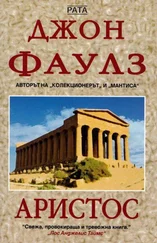
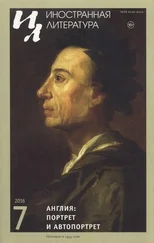
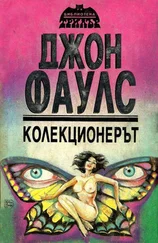
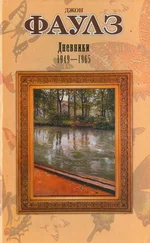

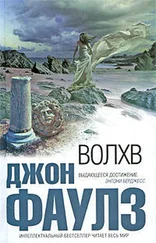

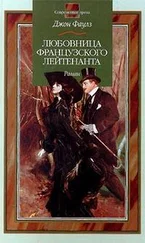
![Джон Фаулз - Вылазка в действительность [антология]](/books/431648/dzhon-faulz-vylazka-v-dejstvitelnost-antologiya-thumb.webp)
![Джон Фаулз - Мантисса [litres]](/books/438194/dzhon-faulz-mantissa-litres-thumb.webp)